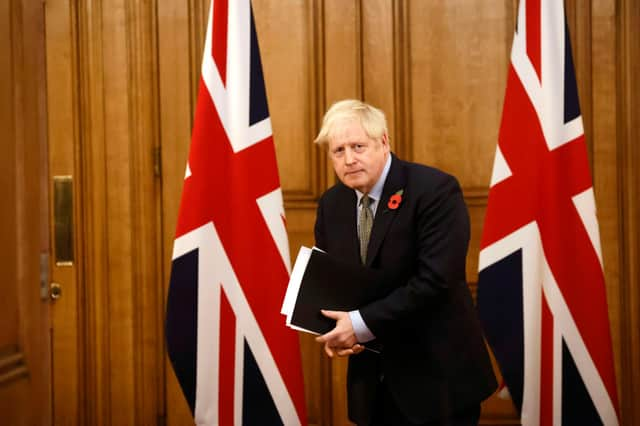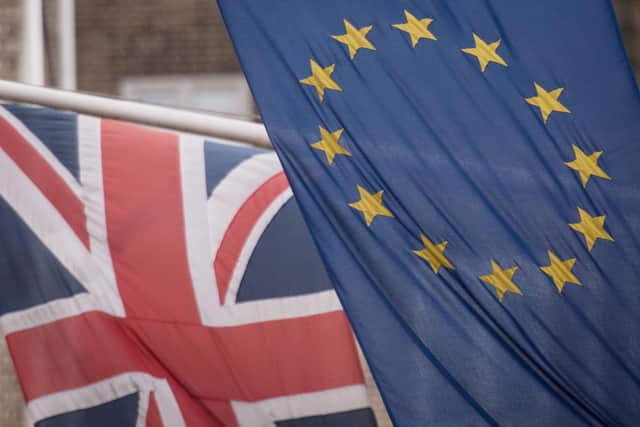Leave campaign made Brexit a 'new religion’, study claims


A new report from the Universities of Birmingham and Warwick claimed the campaigns focused on aspects of Brexit centred on secularised theological concepts such as sovereignty and the concept of a nation to place the blame for Britain’s problems at the feet of the European Union.
The document explained the promise to “take back control” used the NHS as the country’s Holy Grail that could be rescued from European forces that threatened Britain’s unique historical place in the world.
Advertisement
Hide AdAdvertisement
Hide AdThe academics explain this was done by stressing the greatness of the British people and their ability to change its place in the world.


Co-author Dr Peter Kerr, senior lecturer in politics at the University of Birmingham, said: “Former Chancellor Nigel Lawson described the NHS as ‘the closest thing English people have to a religion’ – placing it at the heart of the Brexit narrative was a shrewd political calculation.
“Framing the NHS as the Holy Grail to be rescued from the threat of the EU superstate and an influx of foreign migrants – symbolised by the ‘Brexit Bus’ – neatly cut into a variety of beliefs and emotions about Britain’s place in the world and its membership of the EU.”
The researchers noted there was clear differences in reasoning between Leave and Remain supporters, with the former more likely to appeal on emotion, rather than political or economic reasons.
Dr Steven Kettell, associate professor in politics and international studies at the University of Warwick, explained: “Such quasi-religious narratives worked to heighten the intense emotional fervour around Brexit and led many of its adherents to distance themselves from various facts about its potential future implications.
“This approach effectively insulated claims about Brexit from any sort of rational critique.
"This emotional disconnect from expert advice, along with the willingness of true believers to accept various assertions, created the ideal conditions for the now famous NHS ‘lie’ on the side of the Brexit Bus to play a pivotal role in securing victory for the Leave campaign.”
The report claims this led to support for a hard Brexit soaring, including one without an agreement.
Advertisement
Hide AdAdvertisement
Hide AdResponding to the research, Liberal Democrats MP Alistair Carmichael claimed the UK was already “paying the price” for the decision.
He said: “It should come as no surprise that a nationalist movement like Vote Leave encouraged people to put blind faith in false promises ahead of reality.
“We have to learn the lessons of Brexit and not repeat them.
“There are plenty more nationalist prophets out there who want people to follow them on faith without asking questions.
“We can only move forward as a country, however, if we challenge those who offer easy answers to complicated problems.”
Kirsten Oswald, the SNP's deputy Westminster leader, demanded Scotland be allowed to rejoin the EU.
She said: "The Tories' Brexit deal – imposed in the middle of a global pandemic – has delivered a body blow to our economy, jobs, businesses and people's livelihoods.
“Scottish Government analysis estimates Boris Johnson's deal could cut Scotland's GDP by 6.1 per cent, costing £9 billion, or the equivalent of £1,600 for every person, by 2030 compared to EU membership."
If you haven't already, please consider supporting our trusted, fact-checked journalism by taking out a digital subscription.
Comments
Want to join the conversation? Please or to comment on this article.